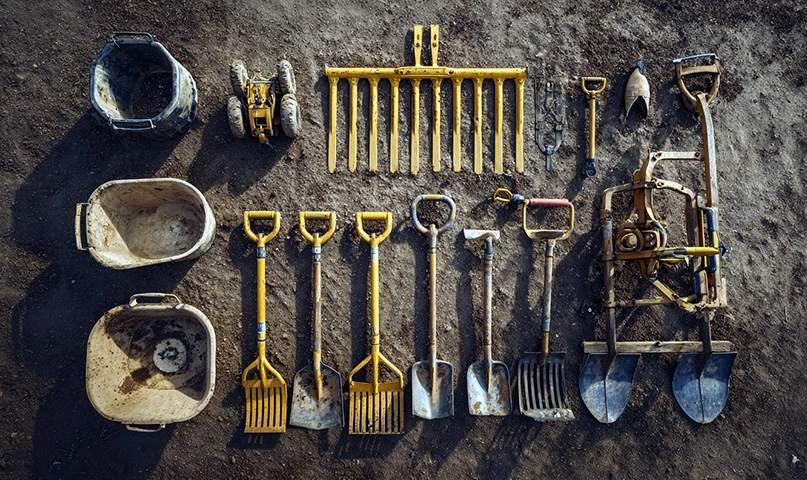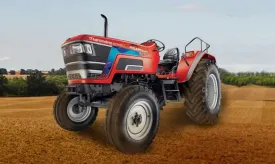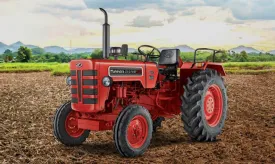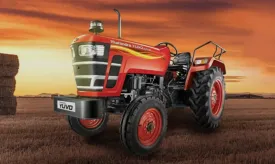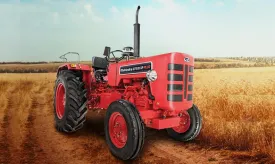How to Choose the Tractor Tyres for Different Soil Types & Conditions
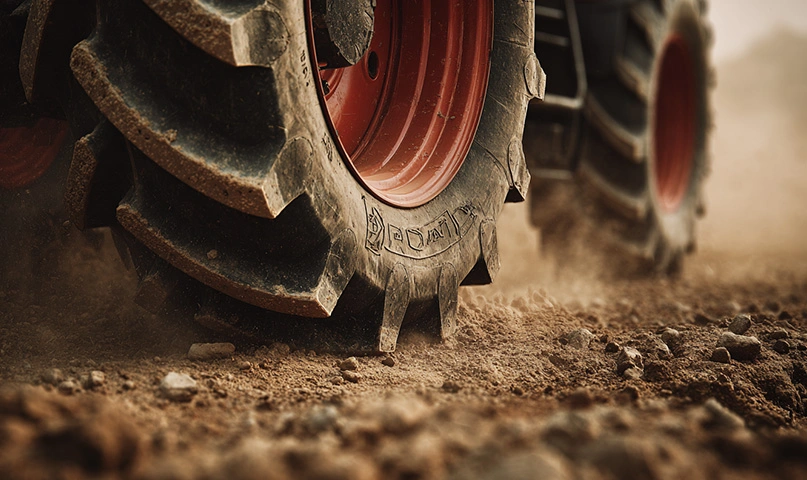
When it comes to efficient farming, your tractor is only as effective as the tyres it runs on. Choosing the right tractor tyres is critical for maximizing performance, reducing slippage, minimizing fuel consumption, and protecting your soil. Since soil varies greatly across regions, a one-size-fits-all approach doesn’t work. A smart farming tyre selection ensures that your tractor can handle specific soil conditions while delivering consistent productivity.
This tractor tyre guide will help you understand how to choose the best tractor tyres based on different soil types and conditions.
Why Tractor Tyres Matter in Farming
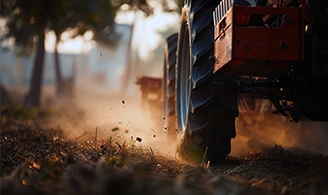
Tractors perform a variety of tasks—from ploughing and sowing to hauling and harvesting. The tyres directly impact traction, stability, and soil health. Poor tyre selection can lead to:
- Excessive fuel consumption due to slippage
- Soil compaction, which harms crop yield
- Reduced tyre lifespan
- Inefficient tractor performance
On the other hand, the right tyres provide:
- Better grip in different terrains
- Reduced soil damage
- Lower operational costs
- Longer service life
Key Factors in Farming Tyre Selection
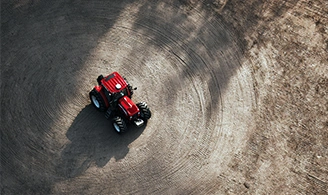
Before diving into soil-specific tyre choices, here are some universal factors to consider:
- Tyre Tread Design - Determines grip and soil penetration.
- Tyre Size & Width - Impacts load distribution and soil compaction.
- Radial vs. Bias Tyres - Radials offer better traction and fuel efficiency, while bias tyres are cheaper and suitable for heavy-duty pulling.
- Load Capacity - Must match the tractor’s horsepower and implements.
- Field vs. Road Use - Tyres designed for off-road farming differ from those optimized for transport.
Also Read: Comprehensive Guide to Tractor Parts and Accessories
Tractor Tyres for Different Soil Types and Conditions
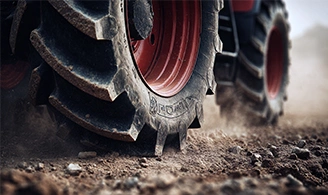
1. Sandy Soil
Sandy soils are loose and require tyres that can grip without sinking. Wider tyres with lower inflation pressure distribute the weight better, reducing the chances of digging in.
Best Tractor Tyres for Sandy Soil:
- Flotation tyres with broad surfaces to prevent sinking
- Radial tyres for lower rolling resistance and fuel savings
Tip: Avoid narrow tyres as they can easily dig into sandy soil.
2. Clay Soil
Clay soils are sticky, especially when wet, and can clog tyre treads. In dry conditions, they become hard and compact, requiring tyres with excellent traction and durability.
Best Tractor Tyres for Clay Soil:
- Deep-lug tyres (R-1 or R-1W agricultural tyres) to prevent clogging
- Radial tyres with self-cleaning designs for wet conditions
Tip: Keep tyre pressure optimal to avoid soil compaction in clay-heavy fields.
3. Loamy Soil
Loam is considered the most fertile soil type. It balances moisture retention and drainage, making it relatively easier to work with. For loamy soil, the focus should be on efficiency and reducing wear during multi-purpose farming.
Best Tractor Tyres for Loamy Soil:
- Radial tyres for general fieldwork and transport
- Multi-purpose tread designs (balanced between grip and road use)
Tip: Choose tyres that offer durability for both field and road since loamy soil farms often involve varied tasks.
4. Rocky or Hard Soil
In rocky terrains or dry, compacted soil, tyres need to withstand punctures and abrasions while delivering high traction.
Best Tractor Tyres for Rocky/Hard Soil:
- Bias-ply tyres with stronger sidewalls for heavy-duty use
- Radial tyres reinforced for puncture resistance
Tip: Regularly check for cuts or embedded stones to extend tyre life.
5. Wet or Marshy Soil
In wet fields or paddy cultivation, tyres must provide strong traction without slipping while avoiding soil rutting.
Best Tractor Tyres for Wet/Marshy Soil:
- Paddy tyres (lug-pattern tyres) designed specifically for muddy conditions
- Wider tyres to reduce sinking
Tip: Clean tyres regularly to prevent excessive mud build-up in lugs.
Also Read: Mahindra OJA 2124 Tractor | 24 HP Tractor | Price & Spec
6. Hilly or Sloped Fields
On sloped terrain, stability and traction are key to preventing slippage. The right tyre reduces risks and ensures safety.
Best Tractor Tyres for Hilly Terrain:
- Radial tyres with deeper lugs for better grip
- Wider tyres for stability and reduced rollover risk
Tip: Maintain correct tyre pressure to ensure better ground contact.
Radial vs. Bias: Which is Better?
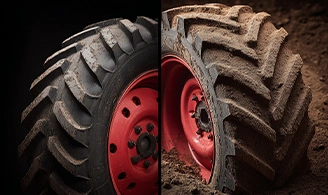
- Radial Tractor Tyres - Flexible sidewalls, better traction, reduced soil compaction, and fuel efficiency. Best for farmers prioritizing productivity and soil health.
- Bias Tractor Tyres - Rigid sidewalls, affordable, durable in rocky terrains, and suitable for heavy pulling. Best for rugged conditions.
Choosing between the two depends on your farm’s soil type, terrain, and budget.
Pro Tips for Maximizing Tractor Tyre Performance
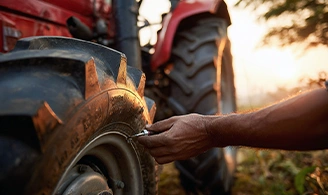
- Check Tyre Pressure Regularly - Incorrect pressure leads to poor traction and faster wear.
- Match Tyres to Implements - Heavier implements may require stronger, higher-load tyres.
- Rotate Tyres When Needed - Balances wear and extends lifespan.
- Invest in Quality Brands - Top manufacturers like MRF, BKT, CEAT, Apollo, and JK Tyres offer specialized tyres for Indian soil conditions.
- Use Ballasting When Necessary - Proper ballasting prevents slippage and increases stability.
Final Thoughts
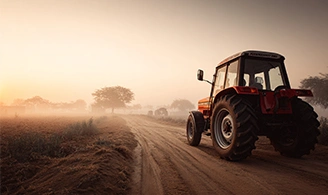
Selecting the best tractor tyres is not just about durability—it’s about matching tyres to the soil and farming conditions. Whether it’s sandy, clay, loamy, rocky, wet, or hilly terrain, the right tyre ensures efficiency, fuel savings, and higher crop productivity.
With this tractor tyre guide, farmers can make smarter farming tyre selections tailored to their soil type. Remember: the right tractor tyres don’t just move your tractor—they move your farm towards success.









